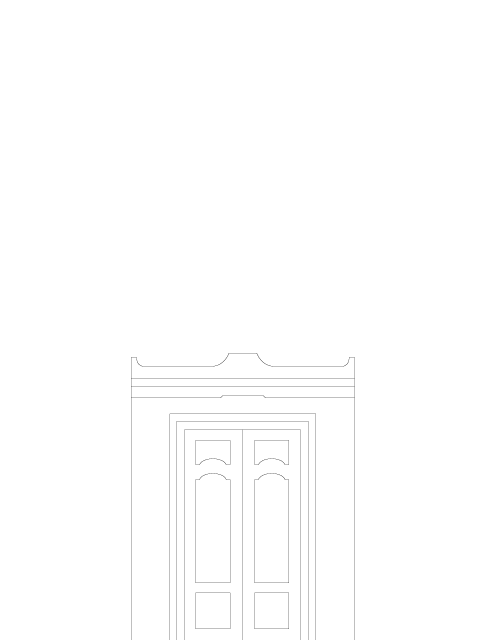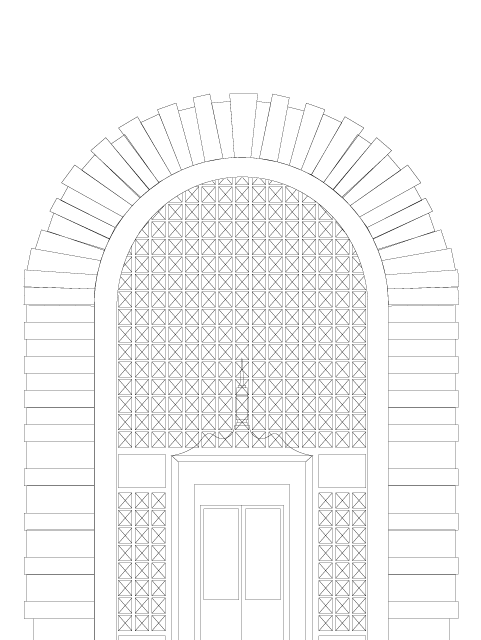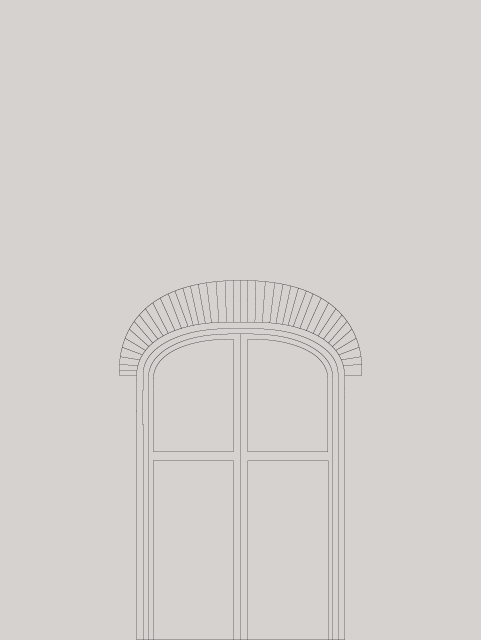Thresholds
Resources
A Quick Guide to the Poetry Landscape: reading, writing and performance
This section is a window on the poetry scene in Cambridge, past and present, and a threshold to reading and writing poetry. If you would like to suggest additions to this page you can contribute to our blog.
Did you know...
Nine of our Poet Laureates graduated from Cambridge.
Famous Cambridge poets include Edmund Spenser, author of The Faerie Queene, the Metaphysical poets John Donne, George Herbert and Andrew Marvell, John Milton, renowned for his late epic Paradise Lost, the leading Restoration poet and playwright John Dryden, the pre-romantic Thomas Gray, best known for his Elegy Written in a Country Churchyard, William Wordsworth and Samuel Taylor Coleridge, whose joint work Lyrical Ballads is often seen to mark the beginning of the Romantic movement, later Romantics such as Lord Byron and the post-romantic Alfred, Lord Tennyson, classical scholar and lyric poet A. E. Housman, war poets Siegfried Sassoon and Rupert Brooke, modernist T. E. Hulme, 20th century poets Ted Hughes, Sylvia Plath and John Berryman, Cecil Day-Lewis, Joseph Brodsky, Kathleen Raine and Geoffrey Hill.
The Fitzwilliam Museum holds the original manuscript of ‘Ode to a Nightingale’ by John Keats
Cambridge University Library holds the earliest extant copy of the only surviving poem by Cædmon, the first English poet whose name is known. It’s called the Moore Bede Manuscript. Other treasures include ‘La Estoire de Seint Aedward le Rei’, a thirteenth-century verse life of King Edward the Confessor, with sixty-four large narrative pen and wash drawings which are regarded as magnificent examples of medieval English book illumination, and are available to view online.
The library also holds modern literary manuscripts including the archive of Siegfried Sassoon, encompassing the diaries and poetry notebooks which he kept on the battlefields of France in the First World War, and papers of contemporary authors such as Wilson Harris, Anne Stevenson, Peter Scupham, George Szirtes and Cambridge writer Joanne Limburg.
Reading and Writing Poetry
“I think we’re brought up in this country with rhymes in our heads because we’re the children of Shakespeare”
Carol Ann Duffy
From the moment you were born you have experimented with language and sound. Nursery rhymes, listening to stories, singing and playground games have all helped develop your language and in the poet Seamus Heaney’s words, this “beds the ear” for the more sophisticated language you encounter as you grow up.
The poet Adrian Mitchell once said “In order to write good poetry you must read good poetry”. Reading and listening to poetry prepares the ground for writing your own poetry.
Where to begin
“If I knew where poems come from, I’d go there” Mick Imlah — Make sure you carry a notebook and pen around with you. You never know when a good word, image or idea for a poem will come to you. Be ready to capture it. — Look at the range of poetry books in your school library or go to your local library and browse through the poetry section — In Cambridge both Waterstones and Heffers have good poetry sections
Live poetry performances
Sign up to a few mailing lists to find out when and where.
“Poetry is what will help you enjoy life once you have got on, or when you don’t get on, or when you are sick of the whole business of getting on”
James Reeves
Thresholds mailing list: info@thresholds.org.uk
Cambridgeshire Libraries newsletter –poetry events and writing groups in libraries
University of Cambridge events, museum events and festivals
The Junction is the Eastern region’s young people’s centre of contemporary culture, workshops and live events
Cambridge Wordfest literary festival
Strawberry Slam features all slam information for Cambridge, Cambridgeshire and beyond
Hammer and Tongue Slam events with guest poets and open poetry slam
National Poetry Websites
“Poetry for me, initially at least, was a kind of a sanctuary, it was a place you could go to. I still think of the imagination as a place like that, it’s a kind of a refuge; it’s a place you can go to, in from the cold, where you can imagine all sorts of things and the imagination itself will help you in various ways get through different times.”
Jackie Kay
The Poetry Archive
The Poetry Archive is a great place to research and learn about poetry and is an online collection of recordings of poets reading their work. You can enjoy listening to the voices of contemporary English-language poets and of poets from the past, absolutely free of charge. You can also read the text of their poems. The Poetry Archive is growing all the time so it is worthwhile to visit the site on a regular basis to enjoy their latest recordings. You can also purchase CDs of all Archive titles from the Poetry Bookshop Online .
Sheer poetry (Carol Ann Duffy’s poetry resources website)
Words on poetry by the poets themselves. Here you will find poems, articles, workshops, interviews and essays, question sessions and more, about and by Carol Ann Duffy, Gillian Clarke, Seamus Heaney, Owen Sheers, Simon Armitage, and others.
The Saison Poetry Library at London’s Southbank Centre
Scottish Poetry Library based in Edinburgh
Literature Wales
Promotes Literature in Wales; contains two searchable databases (one for writers and one for publishers), has a page with some of Gillian Clarke’s poems (English language and Welsh language)
Poetry Book Society for a comprehensive list of books at discounted prices and their main website which contains interviews with poets and shadows the T S Eliot shortlist.
Apples and Snakes
Apples and Snakes is England's leading organisation for performance poetry and spoken word. Their website has information about poets and poetry, education resources and features a different poet every month.
Publishers often feature their poets and poems on their websites.
Peepal Tree Press publish Caribbean, Black British and South Asian poetry and their website features poems and poets with a poem of the week.
Bloodaxe Books have a page where you can watch and hear poets reading their work and a link to their poets reading on YouTube. As do Faber.
YouTube Is the place to discover and watch poets in performance.
The British Library The British Library has extensive collections of poetry in many of the languages of the world and from all periods up to the present time. Poems in books, periodicals, manuscripts, newspapers and sound recordings make up perhaps the greatest collection of its kind.
The Poetry School is the only major national organisation whose sole focus is teaching the art of writing poetry.
With established teaching centres throughout England as well as online courses and downloadable courses and activities, the Poetry School is unique in its ability to reach and develop aspiring poets wherever they may be.
Find out more: http://www.poetryschool.com/
Starting to write
Links to excellent websites which will help your writing:
“All the poems I write are true stories.“
Gillian Clarke
“There’s nothing like a punch in the mouth to remind you that that poem about your next door neighbour was not as clever as you thought.”
Simon Armitage
Mslexia Mslexia is an independent publishing company that provides information and inspiration for published and unpublished women in the UK. The resources section of their website has some useful writing workshops and hints for writing poetry
Young Poets Network Here you will find all sorts of interesting items on poetry writing, reading and performing
What poetry can do - Thresholds poet Jo Shapcott talks about the power of poetry
Poems take time - Thresholds poets Daljit Nagra and Jo Shapcott talk about the act of writing a poem
Poetry Can Packed with information and ideas for aspiring writers
The Arvon Foundation Residential writing courses for young people
Poetry Writing Competitions
Poetry Anthologies
Reading excellent anthologies that knowledgeable editors have compiled will give you a taste of a broad range of poets and poetry, as well as inspiration for writing. They are also a useful pathway to choosing single poet collections to read.
Wendy Cope has compiled some anthologies as lively as her own collections. See for example Is That the New Moon? [1989, poems by women] Funny side 101 humorous poems (Faber) and for children The Orchard Book of Funny Poems [1993].
Carol Ann Duffy – as well as being a brilliant poet, our Laureate is also an outstanding anthologist – volumes include I Wouldn’t Thank You for a Valentine [1992, love], Overheard on a Saltmarsh [2004, poets’ favourite poems] Stopping for Death [1996, death]
Seamus Heaney & Ted Hughes (eds) The Rattle Bag (a great favourite in schools, is an exciting international volume, full of surprises). See also Heaney & Hughes’ (eds) The School Bag.
Geoffrey Summerfield compiled Voices and Junior Voices back in the 1970s but they still look innovative today.
Other good anthologies worth dipping into include:
Emergency Kit, ed. Jo Shapcott and Matthew Sweeney (Bloodaxe)
Staying Alive, Being Alive, Being Human ed. Neil Astley (Bloodaxe)
From the Republic of Conscience – an anthology for Amnesty International. Women’s Work edited by Eva Salzman and Amy Wack (Seren)
Red: Contemporary Black British Poetry, edited by Kwame Dawes (Peepal Tree Press)
Here to Eternity: An Anthology of Poetry, edited by Andrew Motion (Faber)
Poems on the Underground edited by Gerard Benson, Judith Chernaik, Cicely Herbert (Phoenix)
The Ring of Words edited by Roger McGough (Faber)
101 Sonnets edited by Don Paterson (Faber)
Michael Rosen's A-Z: The best children's poetry from Agard to Zephaniah (Puffin 2009)
Dancing in The Street edited by Adrian Mitchell (Anthology for teenagers, Orchard 1999)
New Caribbean Poetry edited by Kei Miller (Carcanet Press 2007)
The Penguin Book of Poetry from Britain and Ireland Since 1945, edited by Simon Armitage and Robert Crawford (Penguin 1998)
The New Poetry, edited by Michael Hulse, Davis Kennedy & David Morley (Bloodaxe 1993)
The Firebox, edited by Sean O’Brien (Picador 1998)
Sixty Women Poets, edited by Linda France (Bloodaxe 1993)
It Takes One to Know One, edited by Gervase Phinn (Penguin 2001)
Books on how to write poetry
Poetry in the Making by Ted Hughes (Poet Laureate 1984 – 1998) is still the best . A slim book all about the imagination and writing.
Write Poetry and Get It Published by John Hartley Williams and Matthew Sweeney. A real page-turner of ideas and exercises to get you writing.
Did you know...
During both world wars, it was common for soldiers to carry a poetry anthology in their pockets
The majority of people turn to poetry when planning a wedding or a funeral
Poems and rhymes are the first strings of words we hear regularly
Lines of poetry and sometimes whole poems are often the last things that remain in the memory
Where to find inspiration
Look, listen and think
Work on your daydreams, turn them into poems
Write something every day
Over the next few months try to visit every Thresholds museum and collection
Choose 3 things to look at carefully and to question.
Everything you see has many stories to tell. Tell one of those stories in a poem.
Remember that poems, like museum collections, have the power to speak across the generations and throughout time
On the road Through Chang-te
On the last year’s trip I enjoyed this place.
I am glad to come back here today.
The fish market is deep in blue shadows.
I can see the smoke for tea rising
From the thatched inn.
The sand of the river beaches
Merge with the white moon.
Along the shore the willows
Wait for their Spring green.
Lines of a poem run through my mind.
I order the carriage to stop for a while.
Sun Yun-feng (18th century China)
Downloads
Ann Gray
- Could it have been Northampton Street? - Ann Gray
- When We Met Again - Ann Gray
- Clothesline - Ann Gray
- Your Body - Ann Gray
- Christmas - Ann Gray
- Mercifully Ordain That We May Become Aged Together - Ann Gray
- In Dreams - Ann Gray
- Better Together - Ann Gray
- One Night - Ann Gray
- Amazon.co.uk - Ann Gray
- Taking the Long Way - Ann Gray
- March - Ann Gray
- April - Ann Gray
- If You Could Come Back - Ann Gray
- Joy - Ann Gray
- Will This Be The Year - Ann Gray
- 'It's a weather in here...' - Red Balloon student
- 'The dead abyss dawned...' - Red Balloon student
- Dawn Redwood - Ann Gray
- Pressing Beauty - Ann Gray
Imtiaz Dharker
- Speech Balloon - Imtiaz Dharker
- Living Space - Imtiaz Dharker
- Honour Killing - Imtiaz Dharker
- The Right Word - Imtiaz Dharker
- A Place Called Battle - Imtiaz Dharker
- Gone - Imtiaz Dharker
- Bombay Tiffin Box - Imtiaz Dharker
- Nettles - Gillian Clarke
- Old Libraries - Gillian Clarke
- Ichthyosaur - Gillian Clarke
- Er Gwell, Er Gwaeth - Gillian Clarke
- Front Door - Imtiaz Dharker
- Glasgow, shore leave - Imtiaz Dharker
- Johnnie - Imtiaz Dharker
- Jaan - Imtiaz Dharker
- 1977 - Imtiaz Dharker
- Polar - Gillian Clarke
- Winter - Gillian Clarke
- River - Gillian Clarke
- Home for Christmas - Gillian Clarke
- Who Killed the Swan? - Gillian Clarke
- Nant Mill - Gillian Clarke
- Running Away to the Sea - Gillian Clarke
- When the copperplate cracks (Theatrum Orbis Terrarum)
Owen Sheers
- Happy Valentine's Day from Carol Ann Duffy
- Pink Mist extract: 'Three boys went to Catterick' - Owen Sheers
- Pink Mist extract: 'At first when they pulled back the curtain I felt relief' - Owen Sheers
- Pink Mist extract: 'Let them have it' - Owen Sheers
- Pink Mist extract: 'There's this language card we got' - Owen Sheers
- Pink mist extract: 'I don't remember any of what happened' - Owen Sheers
- Not Yet My Mother - Owen Sheers
- The Carriage Horses - Owen Sheers
- Late Spring - Owen Sheers
- Harvest - Owen Sheers
- Turn - Owen Sheers
Jackie Kay
- Fiere - Jackie Kay
- The Returning - Jackie Kay
- Granite - Jackie Kay
- Burying My African Father - Jackie Kay
- Dark African Wood - Jackie Kay
- Twins - Jackie Kay
- Mini Me - Jackie Kay
- Breadbin - Jackie Kay
- Fiere Good Nicht - Jackie Kay
- Helen's Room - Jackie Kay
Daljit Nagra
- For the Wealth of India - Daljit Nagra
- The 13 O'Clock News - Daljit Nagra
- Rude Pot Catalogue Card - Imogen, archaeology collections manager
- Unhinge - Aphrodita, postgraduate student
- Mirror - S-J, outreach officer
- Mary's Dreams - Phoebe, undergraduate student
- How about these anklets, Daljit? - Mark, curator
- How Are We Beguiled? - Daphne Astor
- Lies Our Parents Tell Us - Tanika, marketing assistant
- Extracts from the Ramayana - Daljit Nagra
- Dream Time - Charlotte Higgins
- Ariel - Charlotte Higgins
- Chum-Chum Apa-Apa - Aphrodite
- 'I reflect the past...' - Coleridge School student
- 'These modern mortals...' - Coleridge School students
- The Museum of Archaeology and Anthropology in Cambridge
Sean Borodale
- Winter Honey - Sean Borodale
- 24th May: Collecting the Bees - Sean Borodale
- Notes for an Atlas - Sean Borodale
- 29th July: Interior - Sean Borodale
- 21st July: Solstice for Bees - Sean Borodale
- 12th June - Sean Borodale
- 10th February: Queen - Sean Borodale
- 3rd July: Gift - Sean Borodale
- Nike of Paionios in Plaster of Paris - Sean Borodale
Gillian Clarke
- Nettles - Gillian Clarke
- Old Libraries - Gillian Clarke
- Ichthyosaur - Gillian Clarke
- Er Gwell, Er Gwaeth - Gillian Clarke
- Polar - Gillian Clarke
- Winter - Gillian Clarke
- River - Gillian Clarke
- Home for Christmas - Gillian Clarke
- Who Killed the Swan? - Gillian Clarke
- Nant Mill - Gillian Clarke
- Running Away to the Sea - Gillian Clarke
- Hunting the Wren - Gillian Clarke
- Swans - Gillian Clarke
- Grebes - Gillian Clarke
- Burnet Moths - Gillian Clarke
- Glâs Y Dorlan - Gillian Clarke
- 'Sgwarnog - Gillian Clarke
- Marsh Fritillary - Gillian Clarke
- Lambs - Gillian Clarke
- Archaeopteryx - Gillian Clarke
Jo Shapcott
- Erebus
- 'I said I am a man...' - Lucy Mercer
- 'Well-worn by fingers...' - Lou Greenwell
- 'L.J. S. Greenwell is now fox' - Lou Greenwell
- 'His paintings talk of glory...' - Tom
- Erebus extract - Jo Shapcott
- Fox Collar - Jo Shapcott
Matthew Hollis
- The Stone Man - Matthew Hollis
- Wast Water - Matthew Hollis
- Deor - Matthew Hollis
- Animal - Matthew Hollis
Don Patterson
- Advice to young poets visiting museums
- The Lover - Don Paterson
- The Circle - Don Paterson
- Song for Natalie Tusia Beridze - Don Paterson
- The Air - Don Paterson
- Outward Travel Must Not Be In The Past - Don Paterson
- Here - Don Paterson
- What Paterson Fails to Realise - Don Paterson
- Francesca Woodman - Don Paterson
- Legacies - Don Paterson
- When I was ruined by love - Don Paterson
- House - Don Paterson
- A Pocket Horizon - Don Paterson
